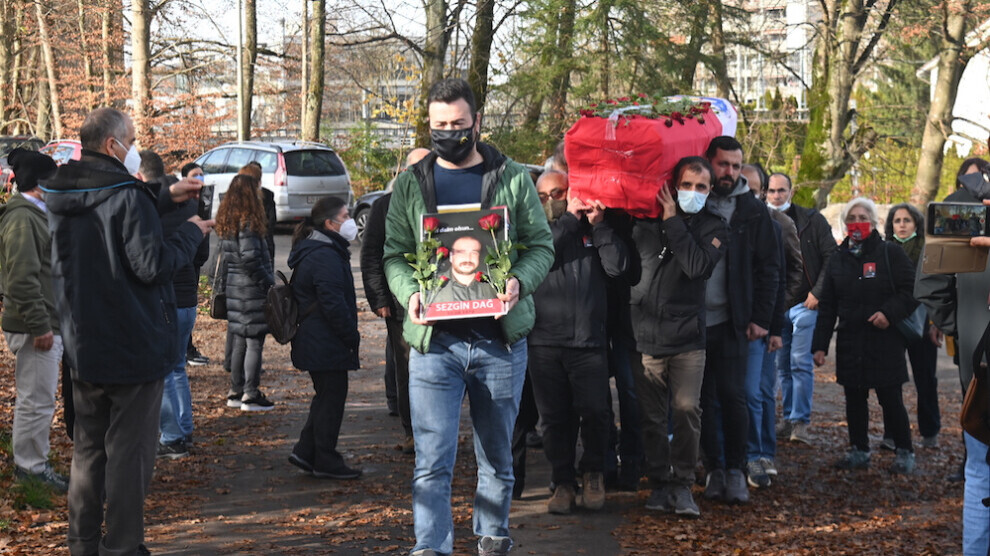Survivor of Suruç massacre dies of heart attack in Bern
Sezgin Dağ, a survivor of the ISIS massacre in Suruç, has died in Bern. His body was sent to Turkey today following a memorial ceremony. AvEG-Kon accuses the authorities of negligence.
Sezgin Dağ, a survivor of the ISIS massacre in Suruç, has died in Bern. His body was sent to Turkey today following a memorial ceremony. AvEG-Kon accuses the authorities of negligence.

Sezgin Dağ, a survivor of the IS attack in Suruç, died of heart failure in Switzerland on November 13. The Confederation of Oppressed Migrants in Europe (AvEG-Kon) holds the authorities in Switzerland jointly responsible for the death of the man born in 1979. His body was transferred to Turkey today after a memorial ceremony at Bern airport.
Dağ was seriously injured by shrapnel in the heart area in the IS suicide bombing in Suruç on July 20, 2015. 33 mainly young people died in the attack. The activists of the Federation of Socialist Youth Associations (SGDF) had gathered at the Amara Cultural Center and wanted to hold a press conference before their departure for Kobanê. The planned trip to Kobanê was intended to be an act of solidarity. The young people wanted to bring children's toys and humanitarian aid supplies to the city destroyed by the IS. 104 people were injured in the suicide attack.
AvEG-Kon accuses the authorities of negligence in the case of Sezgin Dağ who lived for some time in exile in Switzerland. Instead of speeding up his asylum procedure in view of the trauma he had suffered and the serious injury, Dağ was accommodated in a refugee shelter. He was sent from there to hospital after experiencing critical health problems. He died of a heart attack on the very same day when he was not admitted to hospital where he was told that he was alright, and was then sent back to the refugee shelter.
"The loss of our comrade Sezgin shows that the massacre of Suruç is still not over but continues with all its consequences. But also our struggle, with which we hold the murderers and the fascist Turkish state as the real responsible for the massacre accountable, continues every day. The deep wound that the loss of Sezgin has torn into our hearts is accompanied by an explosive anger and hatred for fascism,” AvEG-Kon said.